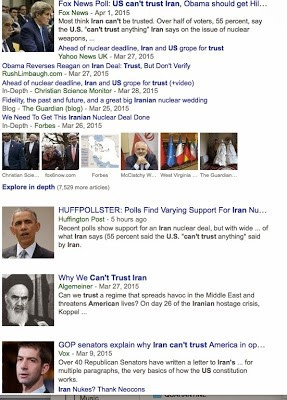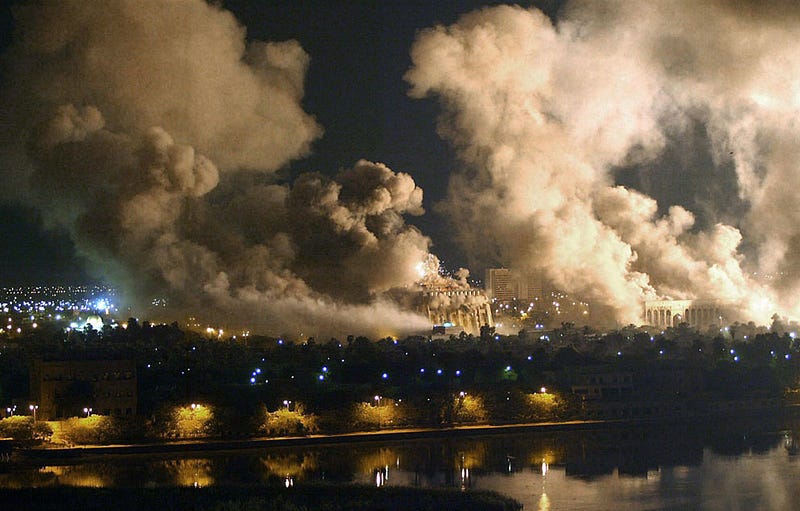Iran, the US, and International Law
Who’s the untrustworthy party here?
The news of a framework for an impending deal between the P5+1 and Iran over the latter’s nuclear program has been met in the United States with skepticism. Leading pundits of the right say with relative uniformity that trusting Iran to keep its word on nukes after sanctions have been lifted is foolish, while those on the American “left” couch their optimism about the deal with warnings about Iran’s inherent untrustworthiness. In short, the American mainstream punditry is rather united in warning that Iran cannot be trusted to uphold its end of a deal.
It’s true that one of the major parties to the agreement should not under any circumstances be trusted when dealing with issues relating to international law. This rogue nation has broken treaties with impunity in the past. This nation has funneled arms and funding to terrorists. This nation, which should not be trusted, does not follow the same international laws and conventions that it demands others do. This nation, of course, is the United States.
The US regularly abuses its status as the lone world superpower. The US has never been too concerned with upholding treaties or laws when its interests have been antithetical to them, especially when these treaties have been with weaker nations. The rationale has changed over the years- from manifest destiny to the Global War on Terror- but the end result is the same. Again and again, the US has proven it will violate law and treaties if it deems fit.
For a good example of the duplicity of the US on the world stage, Iran need look no farther than across its western border, to Iraq. Iraq is a good example for two reasons. One, US involvement in the country, especially over the past two decades s, shows the ugliest side of the US’s interactions with countries it regards as not deserving the protections afforded by international law (read: not strong enough to fight back). Two, if I were to attempt to list all the violations of international law and treaties by the United States, it would encompass the rest of the post.
The US pillaging of Iraq is well known at this point. Here is an abridged list of the crimes over the years perpetrated there by the US:
• Likely involved in coup of 1963 against Abd al-Karim Qasim
• Slaughtered retreating army forces after repelling them from Kuwait
• Invaded in 2003 without support from international community
• Invaded in 2003 after Iraq allowed in inspectors to inspect possible WMDs- when nothing was found, US invaded anyway (this is likely the most damning in the context of this post)
• Used depleted uranium and experimental weaponry during daily bombing sorties on civilian population from 1992–2003
• Violated Geneva Conventions in treatment of prisoners in Abu Graihb
• Operated black sites in Iraq for torture and murder of prisoners of war during insurgency
You get the picture. Given the impossibility of trusting such a rogue nation as the US, it’s a miracle Iran has engaged in negotiations involving the US, period. Given the history of the US in Iraq, why should Iran trust that things will be any different for them? After all- the US media and chattering class has as usual conveniently forgotten this little historical tidbit- the US is the same nation that engineered the Iranian coup of 1957, deposing a democratically elected government and installing the sadistic dictator Reza Shah Pahlavi.
When one looks at the actions of the US on the international stage, it’s obvious that the world’s lone superpower is the least trustworthy of the parties negotiating in Lausanne, Switzerland. A history of consistency in doing whatever it wishes with no consequences for violations of international norms and laws has created an unstable id at the center of American foreign policy. For the US punditry to harangue Iran for its alleged untrustworthiness and future imagined violations of the treaty being negotiated is laughable. The US can’t trust Iran? No. Iran can’t trust the US.






